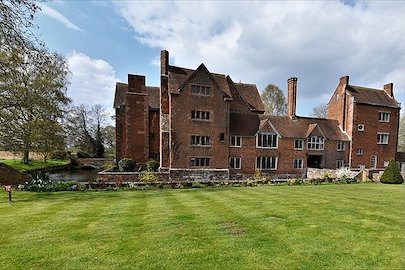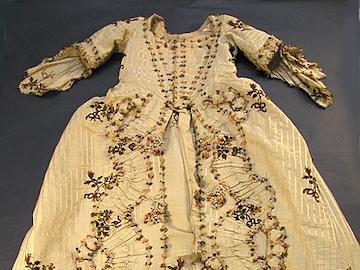Archive
1
Sir Roger explains why he makes Christmas such a special time for all his neighbours.
Sir Roger de Coverley, a Worcestershire baronet, was created by Richard Steele in The Spectator for March 2nd, 1711. Sir Roger was the quintessence of the English rural squire, hearty, sometimes buffoonish, but lovable. Here, he speaks about Christmas on his estates. Steele’s friend Joseph Addison wrote this piece, which began with a line from Ovid: Most rare is now our old simplicity.
Posted Yesterday
2
Baldur was the toast of Valhalla, but Loki was determined to take him down.
In Think and Speak (1929), NL Clay challenged his pupils to stage a mock trial of Loki for the death of Baldur, Odin’s second son. Snorro Sturluson in The Younger Eddas, dating from 1223-23, doesn’t leave much room for doubt, unless we imagine that our Court is not privy to Loki’s shape-shifting wiles. These were the events, as Har explained them to Gangler.
Posted December 16
3
In this ‘Cautionary Tale’, we hear what happened when naughty Jim gave his nurse the slip.
Hilaire Belloc’s Cautionary Tales for Children first appeared in 1907. For nearly two hundred years, writers of the calibre of Isaac Watts had been turning out poetry of moral improvement for children, and for almost as long writers of the calibre of Lewis Carroll had been poking fun at it. This was the first tale in Belloc’s collection.
Posted December 13
4
The politicians of Georgian England went to surprising lengths to shield domestic businesses from overseas competition.
A feature of the eighteenth century was the Government’s ongoing, desperate and self-defeating attempt to support English industry by slapping taxes, tariffs and regulations on overseas competitors. Here, historian William Lecky looks at a few of the more egregious examples, from banning foreigners’ products to denying them technology.
Posted December 10
5
Thomas Carlyle felt that English criticism of Goethe revealed more about his critics than his poems.
Thomas Carlyle was one of the first English critics to appreciate the worth of German poet Johann Wolfgang von Goethe (1749-1832). His fellow critics were much less kind, and Carlyle leapt to Goethe’s defence. A writer may be faulted only if he fails to give adequate expression to his own ideas, he said. We cannot fault him for failing to express ours.
Posted December 8
6
As Lord Marmion lies dying on Flodden Field, there is no one near to tend him but the woman he has wronged.
It is 1513, and Lord Marmion has been mortally wounded on the battlefield of Flodden. As he lies there, his lifeblood ebbing away, a woman kneels beside him. Clare feels no love for him, and the ungoverned passion he feels for her has spread death and dishonour all around. Yet her heart is not as hard as his.
Posted December 6





